By: Bethany Wight, Biologist
UF/IFAS Range Cattle Research and Education Center
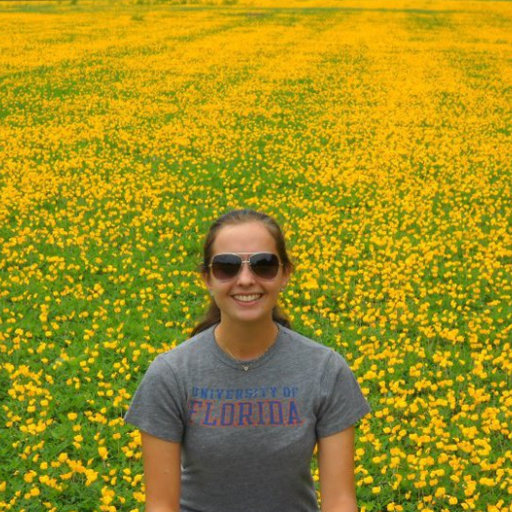
Marta Moura Kohmann grew up in a small town near her family’s farm in the most southern Brazilian state, Rio Grande do Sul. Their farm was originally a dairy farm, but then transitioned into row crops, such as corn and soybeans, as well as having stocker cattle in the cool season. Growing up, Marta enjoyed art classes and played the recorder in the school band. She also learned English and German. Her Dad runs her family farm and also works as an agronomist consultant. Growing up Marta always enjoyed agriculture and tagging along with her Dad around the farm.
Marta received her B.S. in Agronomy and Agricultural Engineering from the Federal University of Rio Grande do Sul in Porto Alegre, Brazil in 2011.
“When I was applying for college, I was deciding between earning a degree in biology, veterinary school, and agronomy. My Dad attended the same school I was applying and took me to the university to visit an old friend of his who was then an Agronomy professor. He explained all of the things you could do with an agronomy degree and I knew that was what I wanted to pursue.”
While earning her B.S. degree, Marta worked as a research assistant in the agro-meteorology and grazing ecology programs. She also had the opportunity to participate in a study abroad program funded by FIPSE-CAPES. As part of this program, she spent a semester at the University of Florida taking classes and working with Dr. Clyde W. Fraisse’s research group in the Department of Agricultural and Biological Engineering. After Marta returned to Brazil to finish her BS degree, Dr. Fraisse invited her to come back to UF and pursue a M.S. degree in his program.
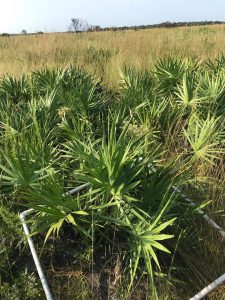
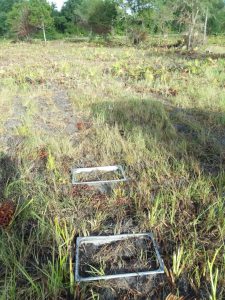
Marta received her M.S. degree from the University of Florida’s Department of Agricultural and Biological Engineering in the area of Climatology in 2014. Her research focused on quantifying greenhouse gas emissions from beef cattle systems in Florida using modeling and field experiments. She was part of the Agro-Climate Group led by Dr. Fraisse whose goal is to provide producers with climate information via interactive tools to help with management decisions. This allowed her to gain experience working with farmers and stakeholders. Her research used an IPCC modeling approach to examine cattle production data from Archbold Biological Station. For the field component, she worked with the UF/IFAS North Florida Research and Education Center evaluating a chemical marker (SF6) technique to estimate methane release from grazing animals. Marta also assisted in organizing the Agro-Systems Seminars, a series that hosted visiting researchers presenting novel work to faculty, staff, and students.
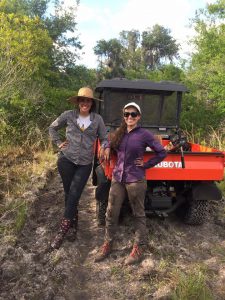
After receiving her M.S. degree, Marta decided to stay at the University of Florida to pursue a PhD. Degree in Forage Management under the guidance of Dr. Lynn E. Sollenberger, Professor in the Agronomy Department. Marta’s PhD research was focused on quantifying ecosystem services provided by the inclusion of legumes in grass pastures. The study examined nutrient cycling through plant litter decomposition, greenhouse gases from animal urine and dung piles, botanical composition and animal preference in legume-grass mixed pastures versus N-fertilized bahiagrass monocultures. Results from her research demonstrated that aboveground litter decomposition and nitrogen net mineralization increased with the proportion of legumes, and was greater than in fertilized or unfertilized bahiagrass monocultures. Marta’s work also indicated that as little as 33% legume presence in litter was enough to increase net N mineralization compared to N-fertilized bahiagrass. Investigating emissions of greenhouse gases from animal excreta, Marta observed that dung of animals grazing legume-grass mixtures emitted more methane than those grazing fertilized bahiagrass, but diet did not affect nitrous oxide emissions from urine or dung. Lastly, under the guidance of visiting professor Dr. Maristela Bauer (Federal University of Espírito Santo, Brazil), Marta evaluated animal preference in mixed legume-grass pastures using two techniques: isotopic abundance and microhistological method. In the first, the isotopic abundance of carbon in bahiagrass and rhizoma peanut plants were recorded and compared to that of the animal’s dung. In the second, histological characteristics (for example, epidermis cell) that are particular of each of the plants are identified and compared to those found in animal dung. Results obtained from this effort showed that both techniques had similar results, with the microhistological technique slightly underestimating legume preference when it was in greater proportion, likely related to its greater digestion. During her Ph.D. program, Marta also worked as a Teaching Assistant and served the Agronomy Graduate Student Association as treasurer and vice-president. Marta completed her Ph.D. program in 2017.
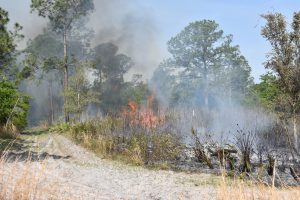
Close to her graduation, she became interested in Dr. Maria Silveira’s research, specifically the LTAR (Long-Term Agroecosystem Research) project. She joined the center as a Postdoctoral Associate in 2018. The LTAR project is part of a nation-wide network sponsored by the USDA with the objective of increasing sustainability in different agricultural production systems. In Florida, the research is developed with a partnership between the Range Cattle REC and Archbold Biological Center and are mainly focused on the effects of fire frequency and associated mechanical control of native rangeland on greenhouse gas emissions, nutrient cycling, soil chemical characteristics, vegetation biomass and composition, and many other parameters of agronomic and environmental relevance. This research is of particular interest due to the importance of native rangelands in South Florida, a unique ecosystem hosting multiple plant and animal species and threatened by increasing urbanization. Results from this project will help define management practices that reduce risks and increase sustainability of native rangelands. To learn more about the LTAR network, visit https://ltar.ars.usda.gov/.
When Marta is not conducting research, she enjoys running and reading (not simultaneously!).
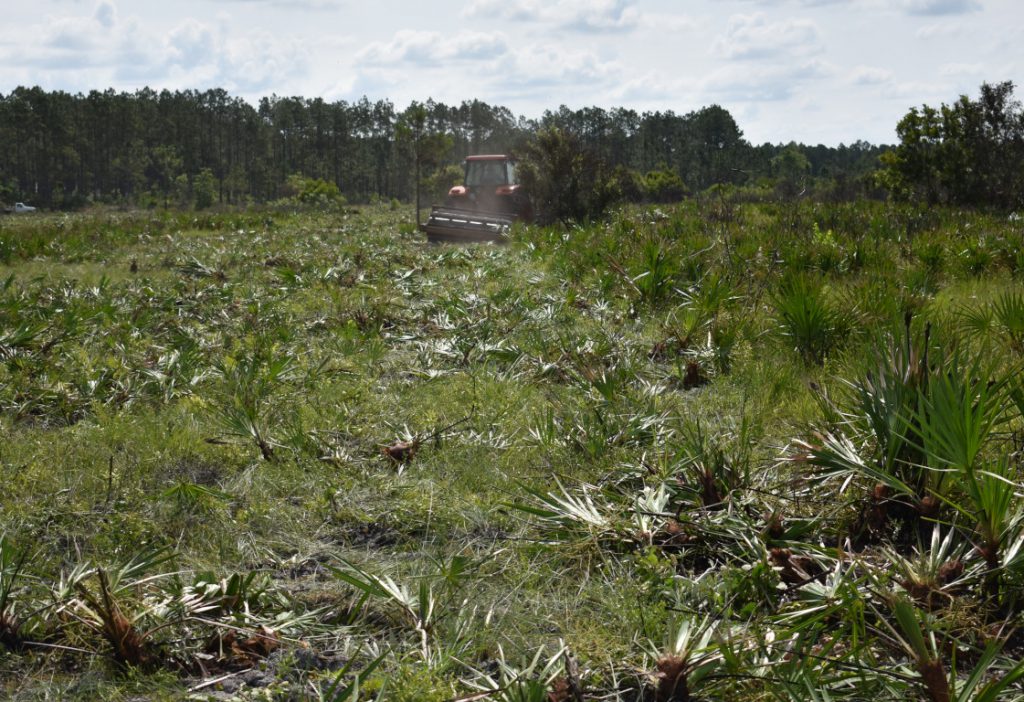
“I would love to find a professor position that combines teaching and research. I assisted several instructors with classes during my Ph.D. and I really enjoyed the mentoring aspects of it, being able to train young scientists, develop their skills and critical thinking. I also love conducting research and using scientific methods to answer difficult questions, so a combination of both with be perfect.”
The LTAR project is funded by the USDA.
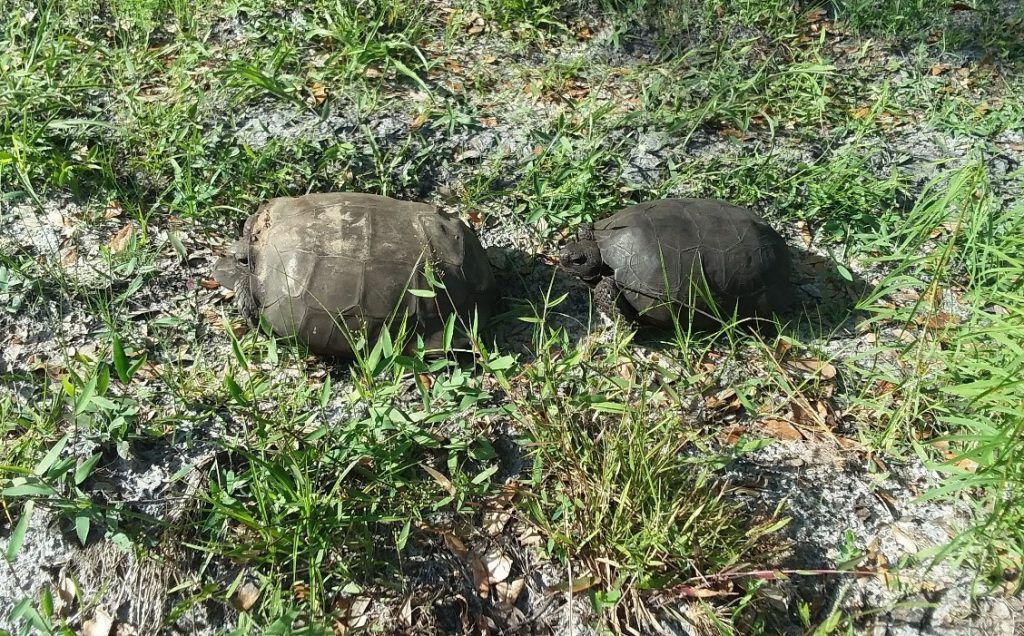
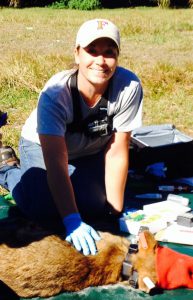
This was written by Bethany Wight, a biological scientist at the UF/IFAS Range Cattle REC in Ona, FL. If you have questions please contact her at bwight@ufl.edu.
 0
0
